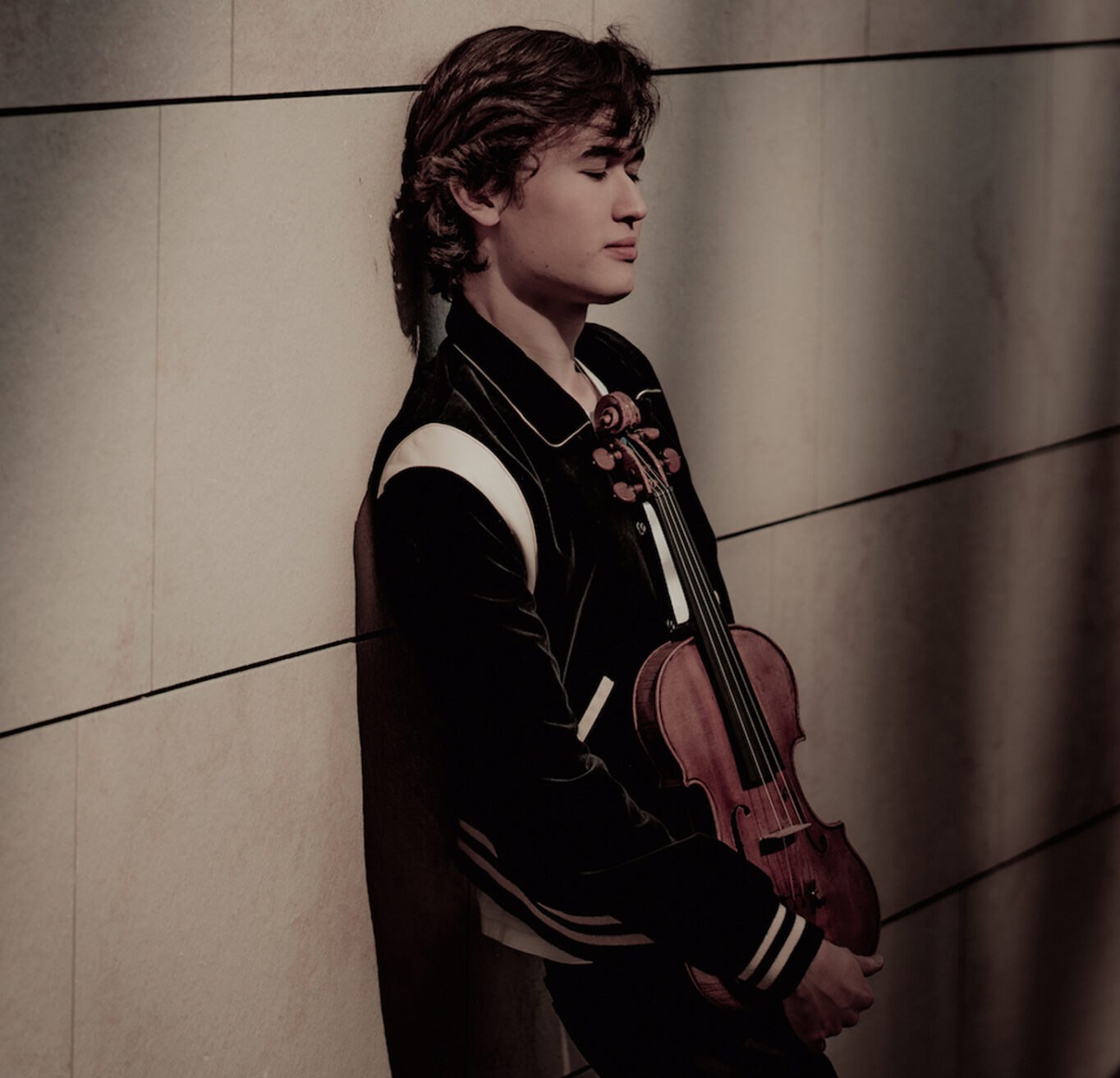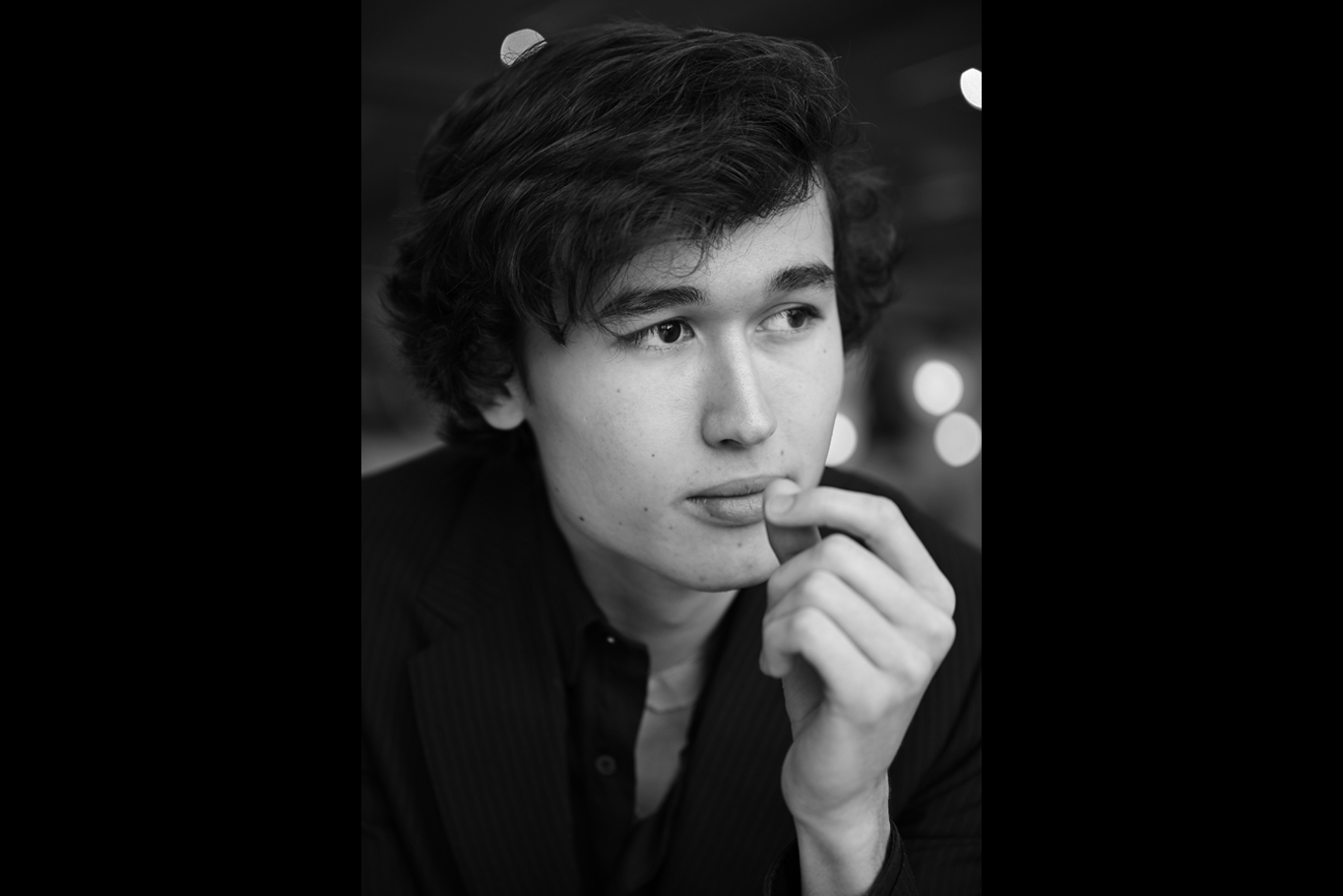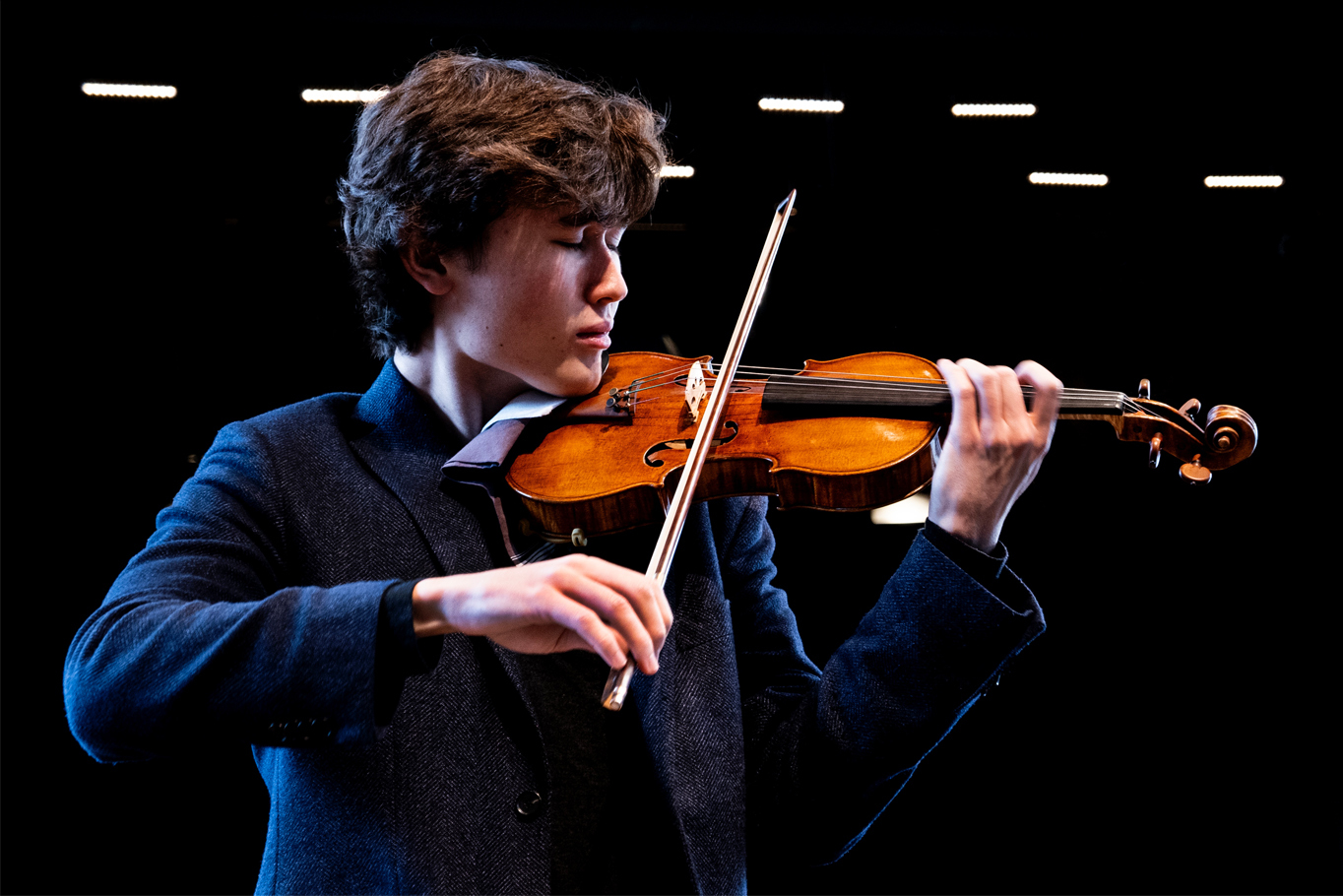
“True Music Is a Revelation, It’s a Medicine”: Daniel Lozakovich Spreads the Good Word
07 April, 2025
Swedish violinist Daniel Lozakovich is a young man full of passion for life and music. Ahead of his Australian debut in May he talks about the transcendent power of art and the ‘otherworldly’ Sibelius Violin Concerto.
By Hugh Robertson
Daniel Lozakovich is reaching for eternity.
Despite just turning 24 the Swedish violinist already has built a career most can only dream of: signed to legendary record label Deutsche Grammophon at just 15, performing on Stradivarius violins loaned to him by admirers and travelling the world playing music night after night. In May he makes his Australian debut performing Sibelius’ mighty Violin Concerto at the Sydney Opera House, where so many dream of playing. But he’s not satisfied with just a stellar career. To quote the great yearner, Henry David Thoreau, this is a young man who wants to live deep and suck out all the marrow of life.
When we speak it is 10pm in Paris. Lozakovich has had a long day – one of countless long days in his jam-packed schedule. You can hear a strain in his voice that suggests he is pushing himself to his limits – and even so, at an age and in a city when his peers are out painting the town, he has chosen to spend his time on a Zoom call to Sydney to talk about his great passions: for music, for art, and for bringing people together in service of something bigger than themselves.
‘For me, my goal is to find the blood of truth in your soul,’ he says, earnestly and sincerely. ‘If it can heal, that's my main goal. Because music – true music, not some easy music or entertainment – true music is a revelation, it's a medicine that can really penetrate and refresh the heart and find in some ways an inner truth.
‘When you believe in something…you have to always deepen the soul to find more secrets, more understanding of what actually really matters at the end. And evolve your heart, because in some ways to touch infinity you have to deserve it. You cannot be touched if you're not developed at all, but if you develop yourself with life experience, with poetry, with music, with arts, with sculptures, with love for people – that’s how you evolve. And that’s when you maybe can start to touch something infinite, something divine.’
There is something so forthright, so assured in the way that Lozakovich speaks that you feel as though you are speaking with a wise old seer; yet there is a passion and intensity that can only come from a young person eagerly carving out their place in the world. Taken together, it has a mesmerising effect.

Some of Lozakovich’s worldly perspective no doubt comes from his background. He was born in Sweden, though his mother is from Kyrgyzstan and his father is from Belarus; further back there are Russian, Tatar, Uzbek, Ukrainian and Belarusian genes. He says that he feels most closely connected to Kyrgyzstan, a former Soviet republic situated on the old Silk Road, at various stages in history conquered by Turkic nomads and the Mongol Empire before being absorbed into the Russian Empire.
He has visited several times over the last few years – his grandfather, a sculptor, still lives there, as do many cousins – and a faraway gaze falls over his face as he tells me about a country most Australians couldn’t find on a map.
‘It is a place where you can dream,’ says Lozakovich. ‘It is a sacred place, it is untouched nature. It was really something that changed my life, the way they appreciate music but also the most important things: family, nature, culture.
‘I saw it in the eyes of people – not how they look, but the eyes, how they look. You can feel a person’s heart through the eyes. I could feel really much about the people and the country itself. But in general, I’m not a person of a nationality. I don’t like to think that a person is a flag: people are people. We have heart. That's why culture is the greatest teacher, because it's heart to heart.
‘We all should aspire to try and inspire each other, and always find ways to surround ourselves with love. I’ve seen so many people that inspired me and really changed the way I see life. And I’m so thankful that there are such people that can give hope.’
In many ways Lozakovich has the ideal job for someone who wants to inspire and connect: he gets to travel around the world, a new city every few days, performing for thousands of people every night. That privilege isn’t lost on him.
‘I am honestly extremely fortunate to be able to play music,’ he says. ‘It gives us the strongest impulse of any language to find truth. It is something that connects with us all. Music pulls the strings of the heart like no other art form.’
And rarely is that statement more true than when considering the only violin concerto written by Jean Sibelius. It is a staggering work musically – it is one of the most difficult concertos ever written – but also emotionally, a torrid inner struggle writ large on a vast canvas.
Jean Sibelius was one of the great composers at the turn of the 20th century, an innovator who managed to capture the spirit of his native Finland in his music by composing music inspired by ancient myths and legends. But he suffered from alcoholism for most of his life, a terrible burden whose deleterious physical and especially financial effects he was only too aware of.
His Violin Concerto was completed under much self-inflicted duress. He had spent much of 1903 in Helsinki, celebrating his rising fame by running up enormous bills at restaurants and taverns. Strapped for cash he rushed to finish his concerto so that it could be performed and he could be paid for it; instead of the planned premiere in Berlin by the virtuoso German violinist Willy Burmester, it was first heard in Helsinki, performed by a violin teacher who wasn’t equal to its considerable challenges.
Despite this – and after some considerable revisions – the work has found its way to the centre of the repertoire, acknowledged as one of the greatest of all concertos.
‘It is one of the greatest achievements of the human spirit by far,’ says Lozakovich, almost in awe. ‘It was an otherworldly touch he found.’
He continues, ‘You can feel there is a lot of pain in Sibelius. I think it's really his strongest confession he ever wrote. And all these feelings that he had that his dream was to be a violinist. And I think that's why also he wrote such an otherworldly violin concerto – because his dream didn't happen. So he put all his rage and sadness into that violin concerto.’
Lozakovich can see Sibelius’ alcoholism in the score, also.
‘There's a fight, always a fight, always…this painful consolation. And why? Because he was an alcoholic, but he was really striving for a great life with his wife, and to find an ideal way of living.
‘I feel in some ways it's a really a person that wrote a confession, love declaration, but also understanding that he couldn't live properly. It's so much pain. It's so much darkness.’
Lozakovich imagines the concerto as autobiographical in parts, Sibelius represented by the solo violin fighting against all the forces that keep trying to take him down.

‘It's a fight between evil and good,’ he argues. ‘Through the violin he is trying to fight the evil darkness that is drowning him and drowning his emotions. He tries to save himself with the violin, his ideal instrument.’
But lest you think it is all bleak despair and defeat, in this concerto – as in life – there is always hope.
‘There was this great Russian poet, Yesenin, and he was really a tortured soul. He died very young and he was also an alcoholic, but his poems really touch you deeply. And he said one thing that I think relates to Sibelius, especially in this piece: “If the devil scalds you inside, that means angels live inside.” It's in some ways very difficult to translate it properly in English, but if it scalds your soul, you know, that's when there's light in it. And you can really feel these things in this concerto.’
With that, Lozakovich brings things full circle to the start of our conversation, and the sanctity of music and the connection between performer and audience.
‘This music is a revelation. And that's why it’s a responsibility, I think, for any artist who is doing such divine music – it has to be performed at the highest spiritual level. Otherwise I think you will fail not only yourself, you will fail the music and the people who come to hear you. There could be one person that truly wants to be healed. It is the responsibility for each artist to give their all.’
Something tells me we can expect Lozakovich to put every ounce of his formidable energy into what are sure to be memorable concerts.
